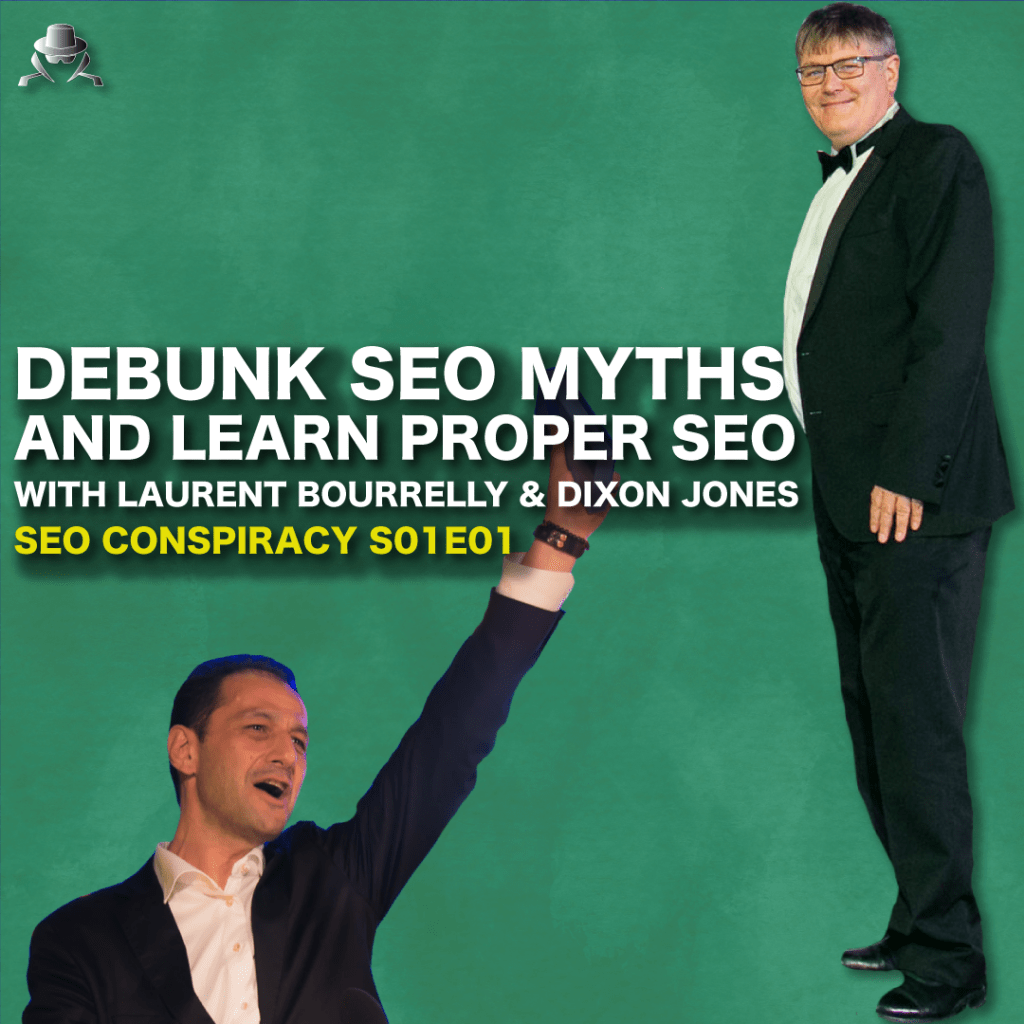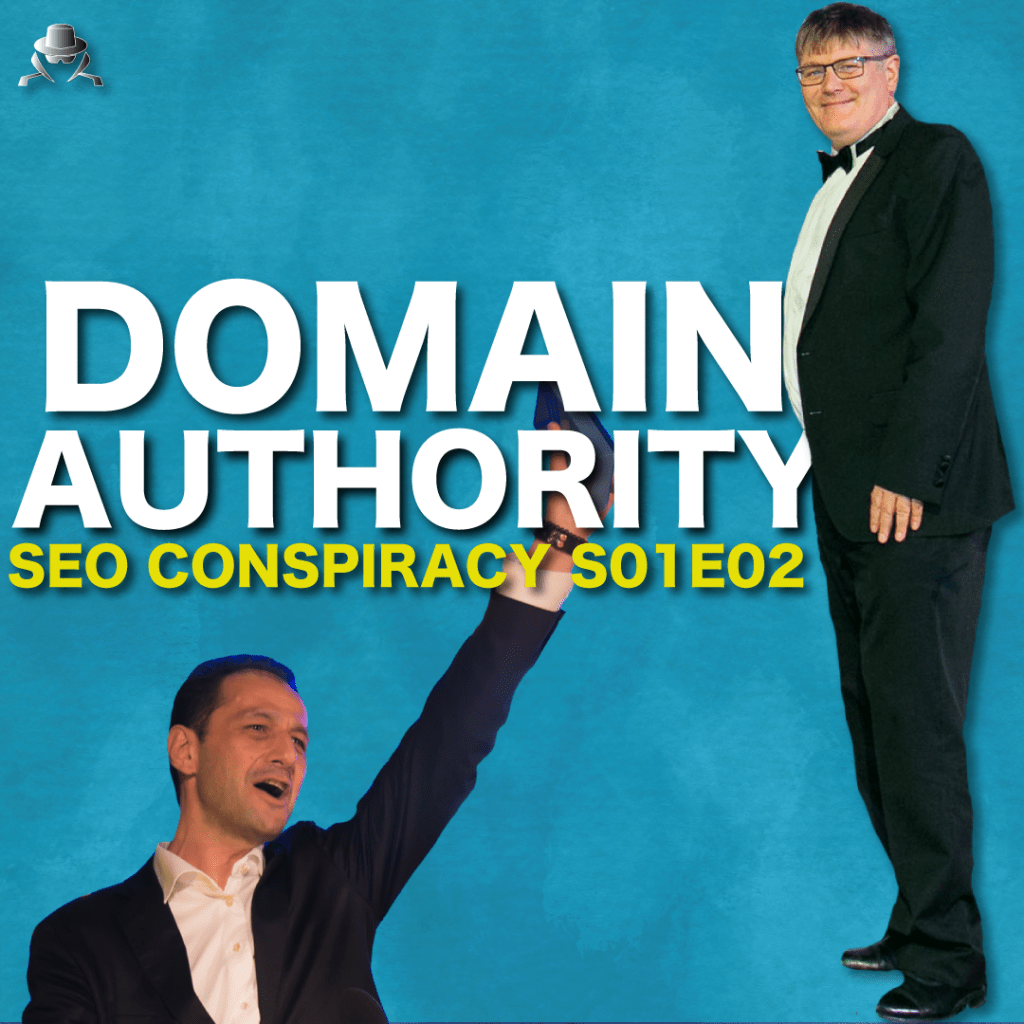RANK #1 OR YOU LOSE
SEO Conspiracy S01E08
The only interesting question to answer is: why do you deserve to be N°1 on Google for your main keywords?
According to X ranking factors, do you really think whatever SEO strategy you apply is 100% efficient?
How do you learn how and what to feed Google and other search engines?
We deliver some exclusive tips and the main pillars of the strategy I started to apply in 2007 and opened up to the public in 2012.
I call it the Topical Mesh, but you might have heard concepts like Semantic Search, Topical Queries, etc.
What is required to perform for real in SEO for Google in 2020 and beyond?
Watch the video
Why Advanced SEO?
SEO is no longer about just keywords and backlinks. Search engines like Google now prioritize semantic understanding, user intent, and topical authority. To succeed, you must think beyond traditional strategies and adopt a holistic approach that integrates content strategy, technical SEO, and innovative link-building.
Key Topics Discussed
1. Moving Beyond Keywords: Understanding Topical SEO
- Google has shifted focus from individual keywords to topical relevance.
- Content should cover related entities and concepts, ensuring comprehensive coverage of a subject.
- Example: Instead of merely mentioning “football,” discuss related topics like referees, stadiums, and team strategies to establish semantic connections.
Tip: Test your content by removing the main keyword. Can readers still identify the topic? This ensures your content is rich in context and meaning.
2. Schema Markup: Your Key to Search Visibility
- Implement structured data to enhance search engine understanding of your content.
- How-To Schema, for instance, can help secure featured snippets, drawing users to your website for complete information.
- Use tools like InLinks or Rank for Win to identify the best schema opportunities.
Actionable Step: Start with high-impact schema types such as FAQs, How-To guides, and Product schema for eCommerce.
3. Internal Linking: Building the Topical Mesh
- Internal linking isn’t just about navigation; it’s about creating a semantic relationship between pages.
- Adopt a topical mesh strategy:
- Core pages link to supporting pages (and vice versa).
- Use relevant anchor text to signal contextual relationships.
Example: A “Sports” page links to “Football,” “Basketball,” and “Athletics” pages with descriptive, contextually relevant anchor text.
4. Content Strategy: The 80/20 Rule
- 80% of your content should focus on branding and engagement, while 20% drives direct conversions.
- Create an editorial calendar to map out content for an entire year:
- Seasonal topics (e.g., “Holiday Gift Guides”).
- Industry trends (e.g., “2025 SEO Predictions”).
- Evergreen content (e.g., “How to Improve Page Speed”).
Pro Tip: Diversify content formats—include video, audio, infographics, and text to dominate multimedia search results.
5. External Link Building: The Smart Way
- Move beyond basic PBNs (Private Blog Networks). Instead, focus on creating real websites with valuable content that naturally attract links.
- Use the Trojan Horse Strategy:
- Develop supplemental resources that complement industry reports or data.
- Offer unique insights or tools that competitors and media can link to.
Advanced Tip: If you engage in blackhat tactics, channel risky links to intermediary sites (buffer domains) to protect your main site.
6. Technical SEO: The Foundation
- A fast, crawlable site is the entry point to compete in SERPs.
- Focus on:
- Mobile-first indexing.
- Core Web Vitals.
- Streamlined JavaScript and CSS.
Analogy: Think of technical SEO as the coin you need to insert to start playing the game. It doesn’t win the game but lets you participate.
7. Anticipating Google’s Future Needs
- Google is moving towards a multimedia-first approach with integrated results featuring text, images, videos, and audio.
- Analyze the current SERP layout for your target keywords to identify content gaps:
- Are videos dominating? Create YouTube content.
- Is there a lack of news? Publish timely, authoritative articles.
Advanced Insight: Tools like InLinks and Rank for Win can predict future SERP trends by analyzing topical relevance and content gaps.
Why Listen to Us?
- Laurent Bourrelly: Over 20 years of experience, pioneer of the Topical Mesh strategy, and a master at advanced SEO techniques.
- Dixon Jones: Former public face of Majestic, now CEO of InLinks, with unmatched expertise in semantic SEO and link analysis.
Together, we’ve seen the industry evolve from basic keyword stuffing to the intricate, user-centric strategies of today.
Takeaway: The Future of Advanced SEO
SEO is not about manipulating search engines; it’s about aligning with user intent and offering value at every stage of the customer journey. By leveraging advanced tools, mastering topical authority, and implementing a robust content and link strategy, you can secure sustainable rankings in an ever-changing digital landscape.
Get Started
- Explore Tools: Test InLinks and Rank for Win to optimize content and link strategies.
- Engage with Us: Have questions or need guidance? Drop your comments or reach out.
- Subscribe: Follow our podcast and YouTube channel for weekly insights into SEO conspiracies and best practices.
Let’s make advanced SEO your competitive edge.
Listen to the podcast


